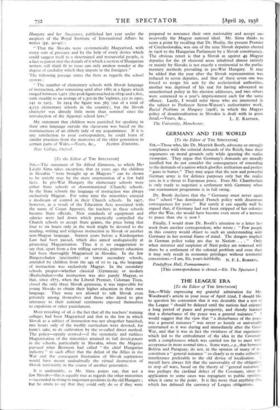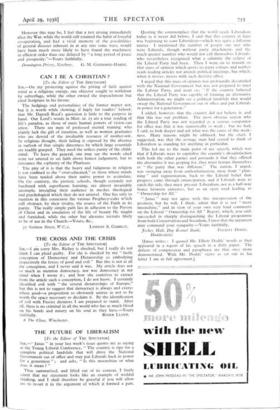THE LEAGUE ERA
[To the Editor of Tint SPECTATOR] SIR,—While expressing my grateful admiration for Mr. Woodward's article in your issue of April 22nd, I should like to question his contention that it was desirable that a test of the League "should be delayed until the nations had enjoyed a long period of peace and prosperity, and thereby learned that a disturbance of the peace was a general nuisance." I would suggest that the view that "a disturbance of the peace was a general nuisance" was never so keenly or universally entertained as it was during and immediately after the Great War, and that it was in fact the vividness of that experience which led to the embodiment of the idea in the Covenant with a completeness which was carried too far to meet with acceptance in more normal timcs. Some wars, e.g., that between Bolivia and Paraguay, do not, in the opinion of many of Li,. constitute a "general nuisance " so clearly as to make collectiv_: interference preferable to the old device of localisation. ?- myself have always felt that the universality of the obligation to stop all wars, based on the theory of "general nuisance," was perhaps the cardinal defect of the Covenant, since 11 application to some cases was repugnant to public opinior., when it came to the point. It is this more than anything else which has debased the currency of League obligations.
However this may be, I feel that a test arising immediately after the War, while the world still retained the habit of forceful co-operation and had a vivid memory of the possibilities of general disaster inherent in at any rate some wars, would have been much more likely to have found the machinery in efficient order than one delayed by "a long period of peace and prosperity."—Yours faithfully,



























































 Previous page
Previous page